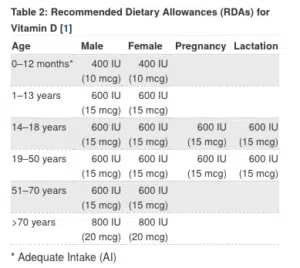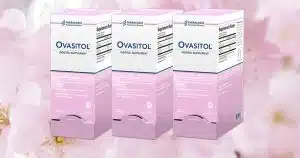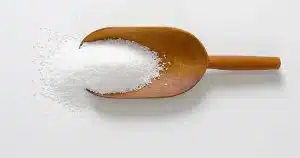Very often when we are first diagnosed with PCOS our doctors are quick to prescribe some kind of medication (insulin sensitizers or birth control) or they may not prescribe anything at all (as my doctor did). However, supplements for PCOS often go unmentioned. But the thing is, there is some wonderful research out there that suggests that specific PCOS supplements can be more effective than medication in treating the symptoms of PCOS.
So, in this article, we’re going to talk about which supplements are best for PCOS and why you should consider taking them. Before we get on to that though, let’s have a quick look at what PCOS is and what it means for the millions of women who have been diagnosed with it.
What is PCOS?
PCOS is essentially an endocrine disorder. This means that something has gone amiss with our hormones. It is this underlying hormone imbalance that leads to many of the unpleasant symptoms we see in PCOS.
Now, what hormones are impacted, you may be wondering.
Hormones affected by PCOS
Insulin
You may be surprised to find that one of the primary hormones affected in PCOS is insulin. Now this is important because many of the supplements recommended for PCOS help to sensitise the body to insulin or help with the way in which insulin in processed in the body.
Androgens (Testosterone)
High levels of testosterone cause some of those all-too-familiar pesky symptoms like hirsutism (hair where we don’t want it), alopecia (male pattern hair loss), and acne.
Sex hormones
Now, androgens are sex hormones but there are so many other hormones associated with female fertility and the menstrual cycle. It’s a lot to get into now in the context of this article but the following hormones are also affected by PCOS: sex hormone binding globulin, luteinizing hormone, estrogen, progesterone, to name just a few.
So, you can see that PCOS is not just about fertility, or just about weight or even just about that frustrating hair growth. As PCOS is an endocrine disorder, it has a variety of symptoms and each women with PCOS can present differently.
How is PCOS diagnosed?
PCOS is commonly diagnosed using the Rotterdam criteria. This criteria states that in order for a woman to be diagnosed with PCOS, she needs to present with 2 out of the following 3 symptoms:
- Signs of high androgen levels
- An irregular menstrual cycle
- Cysts on your ovaries
How can you manage PCOS?
Now, there are so many things that you can do to help with your PCOS, many of which I have already written about. Following a good PCOS Diet is crucial in helping to manage your underlying hormone imbalance so that is a great place to start.
You can find out all about the ins and outs of the PCOS Diet here.
And supplements also play a huge role. So, let’s have a look at the Top 3 Supplements for PCOS.
Inositol
The research on Inositol is pretty overwhelming and it is my favourite PCOS supplement. I have written about Inositol here and here so we’ll just keep this brief:
How Inositol helps women with PCOS
What it will help with (1):
- restores normal ovulatory activity
- increases fertilization rate
- prevents spina bifida birth defect
- lowers free testosterone (research has shown up to a 73% reduction)
- lowers total testosterone (as much as 65% reduction)
- lowers LH (as much as 55% reduction)
- lowers insulin response after meals (as much as 62% reduction)
- lowers DHEA-S (as much as 49% reduction)
- increases SHBG (as much as 92% increase)
- lowers androstenedione (as much as 27% reduction)
- lowers triglycerides (as much as 51% reduction)
- lowers blood pressure (minor decrease)
- increases peak progesterone (129% increase in one study)
That’s a pretty impressive list and you can probably see why it is one of my favourite PCOS supplements!
What are Inositol’s side effects?
Well, the side effects are pretty mild and it is a very safe supplement to take. 5% of people taking up to 12g of Inositol have mild digestive issues (2).
How much inositol should you take for PCOS?
The recommended dose of Inositol for women with PCOS is 2g in the morning and 2g in the evening. You can get it in capsule form but each capsule normally only has 500mg so you will have to take 8 capsules a day to get to your 4g.
Alternatively, you can get Inositol is powder form and it is really easy to simply mix it with water. It has a very slight sweet taste and is very palatable.
Where can I get Inositol from?
My favourite Inositol is a combination of 2 Inositols – D-chiro and Myo-Inositol. It is called Ovasitol and is available from Theralogix.
Alternatively, Jarrows Inositol powder from Amazon is a good option.
Vitamin D
Now, did you know that 80% of women with PCOS have been found to be deficient in Vitamin D? That is huge! So, I think that a Vitamin D supplement is super important for all women with PCOS.
Why is Vitamin D important for women with PCOS?
Well, Vitamin D is vital for numerous bodily functions and a deficiency in this all important vitamin can make many of the symptoms of PCOS much worse. A vitamin D deficiency has been linked to (3):
- Insulin resistance
- Ovulatory and menstrual irregularities
- Hirsutism
- Hyperandrogenism
- Obesity
- Lower pregnancy success
Not only that, Vitamin D supplementation has been shown to combat depression in women with PCOS. Depression is one of the less spoken about symptoms but it is so important that we recognise that many many women with PCOS struggle with depression too and Vitamin D supplementation may well combat this (4).
What are Vitamin D’s side effects?
As Vitamin D deficiency becomes more wide spread, many foods are being fortified with this all-important vitamin. There are no side effects of Vitamin D supplementation although it is possible to take too much Vitamin D and develop Vitamin D toxicity. However, you would need to take a huge amount of Vitamin D to reach toxic levels.
According to the Vitamin D Council, you need to take 40 000 IU per day for a couple of months or a single dose of 300 000 IU to reach toxic levels.
Vitamin D is important for the absorption of Calcium so a Vitamin D toxicity is often seen in high levels of Calcium. Symptoms of Vitamin D toxicity include (5):
- feeling sick or being sick
- poor appetite or loss of appetite
- feeling very thirsty
- passing urine often
- constipation or diarrhea
- abdominal pain
- muscle weakness or pain
- bone pain
- feeling confused
- feeling tired
How much Vitamin D should you take for PCOS?
The NIH (National Institutes of Health) recommend the following daily dosages for Vitamin D (6):
These dosages are generally thought to be much lower than is actually needed and are suggested as the minimum daily requirement to maintain bone health and for calcium metabolism in healthy individuals.
I would say that if you have a Vitamin D deficiency and you have PCOS, your Vitamin D needs to be significantly higher than that.
The Vitamin D Council suggests that we should be taking at least 5000 IU per day (7).
Where can I get a good Vitamin D supplement?
I like to take my Vitamin D in drop form. It is often an oil based drop as Vitamin D is a fat soluble vitamin. This is the one that I would recommend, available from Amazon.
Omega 3
Now, Omega 3 is an important one. You see, there are 3 different kinds of Omega essential fatty acids – Omega 3, 6 and 9. Now, we get quite a lot of Omega 6 and 9 in our diets but we tend to lack Omega 3. Also, the ratio of the three Omegas is important.
So, let’s have a look at why Omega 3 is important for women with PCOS.
Why is Omega 3 important for PCOS?
Omega 3 is an important fatty acid for a number of reasons. In relation to PCOS, Omega 3 supplementation has been shown to help with the following (8, 9):
- Improved waist circumference (very often where women with PCOS carry weight)
- Improved lipid profile and overall decrease in cholesterol
- Increased frequency of periods and menstrual cycles
- Lower testosterone levels
So basically we’re saying that Omega 3 supplementation will help to:
- Improve your cardiovascular health
- Improve fertility and chances of getting pregnant
- Manage hair growth and improve acne
- And help you feel better in your clothes as your waist circumference decreases
It all sounds pretty good to me!
What are Omega 3’s side effects?
Omega 3 supplementation has been associated with (10):
High doses have also been associated with increased risk of bleeding so if you have a blood clotting disorder, you should speak to your doctor before starting an Omega 3 supplement.
How much Omega 3 should you take for PCOS?
Many of the studies done of the benefits of Omega 3 supplementation in women with PCOS were done with participants taking 4g of Omega 3 fatty acids with 720mg of EPA and 480mg of DHA (11).
Where can I get a good Omega 3 supplement?
It’s important to find a good quality Omega 3 supplement with low mercury levels. So, I really like the Nordic Naturals Fish Oil. It is tested for heavy metals and other toxins and it is a good quality, high dose of Omega 3. Again, you can get it on Amazon.
Okay, so if you have just been diagnosed with PCOS or you’re just starting to look at how to manage your PCOS more naturally, those are the top supplements that I would suggest. Now, there are other supplements out there but I would start with these 3 and see how you get on. You can always add in more later if you feel you need to.
How to get started with supplements for PCOS
Now, this may seem pretty straight forward. Get your hands on each of these supplements and start taking them, right?
Well, yes. But I do want to just give one piece of advice. And this goes for taking any supplement.
Start with one supplement at a time
The thing is, if you go gung ho and take too many supplements at once, you’re not going to know which supplement is making a difference for your symptoms or which one may be giving you unpleasant side effects.
So, start with one at a time. Take it for 3-4 weeks and monitor how you feel. If you’re not experiencing any unpleasant side effects and you’re feeling good, then add another and so on.
Take them for at least 2-3months
Sometimes we start to feel better straight away and sometimes it takes a little longer. It takes at least 3 months for an egg to reach maturity and for ovulation to take place. If you’re looking to see improvements in your cycle, you need to take the supplements for at least 3 months.
If you’re hoping to see improvements in hirsutism, it takes 6-12 months to start seeing improvements.
So, be patient with these supplements and with yourself. Give it at lest 2-3 months to start seeing improvements before you give up and stop taking them.
If there are any supplements that I have not mentioned that you feel have really helped your PCOS, leave me a comment below and let me know!
Please note: This article contains affiliate links.
- sustainable pcos weight loss strategies
- Over 5500 women have done it and seen results
- [bonus] combat cravings kit
- [bonus] intermittent fasting for pcos course
- [BONUS] personalised nutrition plan
JOIN OVER 5,500 OTHERS









24 Responses
Hi is there one that is best mainly for weight loss?
should vitamin D be taken with calcium? I am having a hard time finding a vitamin d that has calcium that is 5000 iu
Hi Tarryn ,
Which vitamin D drop u will recommend because when I click on the link, the Amazon window pop up with many Vitamin D options.
Hi Tarryn,
I just had my baby 3 months ago and I am breast feeding. Is Ovasitol safe to take while breast feeding?
Thanks
Hi Yasmeen, Congrats on the birth of your baby! Yes, Ovasitol is safe to take when breastfeeding.
You are doing amazing work 😊! Thanks for sharing your wonderful posts. I’d like to share a very positive experience with Metformin. I was diagnosed with PCOS after very irregular periods and anovulatory cycles. I already worked out regularly and was a healthy weight. My husband and I tried for a very long time to conceive and were starting to lose hope. I started taking Metformin. So happy 😊 I found ‘Met24preg’ ❤️ in Google and got this magic help. The first month, my cycle length was cut in half and the second month, I got pregnant! I never thought the day would come that I would see a positive pregnancy test. We now have a perfect baby boy. Keep your head up and give it a try…I am so thankful that I did.
I am looking to try supplements for my pcos and insulin resistance. I have done Vit D cause it is low. I did have infertility years ago but used fertility pills and did have 3 children. My main issues are always feeling fatigued, lightheaded and anxiety. I feel like this every day and it has interfered with my daily life and makes living hard. Any suggestions on what to start first?
Hi Tarryn, have you heard of the supplement, Balance by Alani Nu? What do you think of it?
My doctor has prescribed me ovasitol myo that contains inositol myo , chiro inositol and vitamin d3.
I also try to get the sun.
Ttc #1 . 1 yr 6 months still no luck !
Can I take garcinia cambogia as well? Also, do I continue taking these forever, or should they reset my system after some time so that I no longer need them?
Hi there, is there a multivitamin for PCOS that contains all these needed supplements in one? I know PCOSDiva has a store with PCOS multivitamins, containing inositol etc, made by I guess their own products, but don’t know how good or reputable they’d be. They’re pretty expensive too.
Thanks!
Haiii..how about if i try omega 3 1600mg with vitamin d 1000iu(nordic brand)
And calcium 1000mg magnesium 500mg zinc 15mg n vitamin d3 1000iu(lindberg brand)
And also ovasitol..
its all enough?my period not stop after 1 month..and yes im pcos..
Also am i need nac to combine with all the supplement?im waiting for ur help..thx u tarryn
Hello! I am breastfeeding, and am wondering if these three supplements would be safe to take? I am so glad I found this article!
Hi Tarryn,
I have researched different supplements are not sure what to start taking and how much? Is there any way you can email me and offer me some help on this? It would be greatly appreciated! Thank you!
I don’t know if it actually works yet, I’m on day one haha But I got my hands on AOR’s Ovarian Health and really excited that they formulated one just for a PCOS Cyster like me! https://aor.us/products/ovarian-health
I would love to know your thoughts!
Can I take Ovasitol and LO LOESTRIN FE TABLETS (birth control) at the same time? I want to make sure it is safe.
Thank you!
Hi,
Do you suggest these supplements for women with PCOS who are menopausal or postmenopausal?
I still have all the same issues ..I am just now older
Hi Tarryn,
Thanks for the useful article.
I am also taking B complex, chromium and magnesium as most ladies with PCOS have deficiency on those vitamins and minerals.
It sounds a lot, but not every women with PCOS has the same symptoms as it depends on which type of PCOS she has. So, we need to address first what e have and then take the suitable supplements. We can have one or more of those issues: Insulin resistance, high androgen, thyroid hormones unbalance, cortisol unbalance,
So I found out that Inositol works greatly for me, unfortunately it gives me hives daily. And I have to use Hydrocortisone cream daily to clear them… Now I’m torn between stopping it or continuing it. Been using for over a month now.
I am on metformin, does these supplements replace it? Can you take these with garcinia Cambria and apple cider vinegar pills? (On those to try to aid weight loss)
Jessica, I would definitely speak to your doctor before stopping Metformin. Whilst you can take these with Garcinia Cambria, it may not be the healthiest option: https://draxe.com/garcinia-cambogia/
I didn’t mean iron, I meant zinc sorry.
Hi tarryn- so after reading this I noticed there are some supplements you left out that you suggested to use in other posts you wrote. Ovasitol, magnesium, iron, and folate. When I clicked the supplement tab on the blog an article for each of these came up and you recommended us taking them. What do you suggest?
Hi Shelby, the supplements mentioned in this article are the 3 most important ones, in my opinion. These are my baseline supplements. I also do take Zinc and Magnesium so you can keep going with those. Ovasitol and Inositol are one in the same though so don’t double up on that one